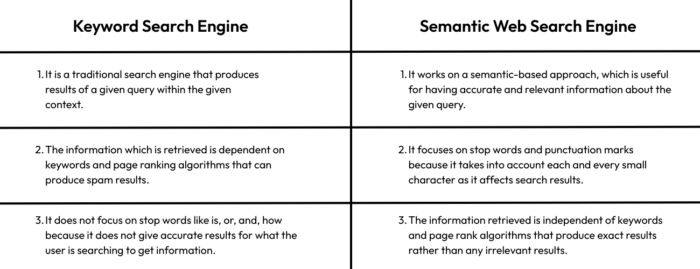No, a lifetime VPN subscription doesn’t mean ‘your’ lifetime
Folks who signed up for al lifetime subscription with VPN provider VPNSecure have been discovering the true definition of “lifetime” when it comes to such deals. And it’s not the one they’d hoped to hear. After new owners took...

 Privecstasy / Unsplash
Privecstasy / Unsplash
Folks who signed up for al lifetime subscription with VPN provider VPNSecure have been discovering the true definition of “lifetime” when it comes to such deals. And it’s not the one they’d hoped to hear.
After new owners took over the company, these particular customers recently had their lifetime subscriptions canceled. The new operator of VPNSecure told them that it didn’t know about the lifetime deals when they acquired the business, adding that it was unable to honor them.
“To continue providing a secure and high-quality experience for all users, Lifetime Deal accounts have now been deactivated as of April 28th, 2025,” the company told customers in an email seen by Ars Technica. It added: “This was not a decision made lightly — but one made with the future of VPNSecure and all its users in mind.”
The same email said: “Unfortunately, the previous owner did not disclose that thousands of Lifetime Deals (LTDs) had been sold through platforms like StackSocial. We discovered this only months later — when a large portion of our resources were strained by these LTD accounts and high support volume from users, who through part of the database, provided no sustaining income to help us improve and maintain the service.”
VPNSecure is attempting to placate impacted users with discounted deals starting at $1.87 a month, $19 for a year, or $55 for three years, compared to the usual rates of $10, $80, and $108, respectively.
A company representative has claimed that the new team was unable to access the customer database until “months” after it took ownership, with the takeover giving them “the tech, the brand, and the infrastructure/technology — but none of the company, contracts, payments, or obligations from the previous owners.”
In a more recent message sent to customers on May 11, the company said: “We did our due diligence — including reviewing the past 6-12 months of financials. But nowhere in the listing, profit and loss statements, or communication was there any mention of Lifetime Deals … We kept those accounts running for 2 extra years, entirely at our own cost — even though we never received a single cent from those subscriptions.”
The ongoing and rather sorry saga is a lesson for anyone considering a lifetime subscription with any service. The advice is to check the small print, as “lifetime” is most likely to mean a set period, or the lifespan of the company or offered service. In theory, it’s possible your “lifetime” subscription could be canceled the day after you sign it — if you were particularly unlucky. What it doesn’t mean is your lifetime, though if you croak before the company does, then you could argue that the subscription fulfilled its end of the bargain. Though actually you wouldn’t be able to because you’d be dead.
Looking for a new VPN provider? Digital Trends recently assessed two for speed and value.
Not so many moons ago, Trevor moved from one tea-loving island nation that drives on the left (Britain) to another (Japan)…
Here’s yet another reminder that Incognito Mode doesn’t protect your data
Google is now making efforts to ensure users understand the meaning of Incognito Mode on its Chrome browser following a class-action lawsuit that cost the company $5 billion.
The publication MSPoweruser discovered Google tested a Canary build of Chrome with an updated definition of Incognito Mode that more clearly spells out the stipulations of what is hidden when you enter the browsing state. The new disclaimer includes an added line in the first paragraph that reads: "This won't change how data is collected by websites you visit and services you use." Otherwise, it remains largely the same.
Samsung has a 3D gaming monitor that doesn’t need glasses — and it actually works
I've never been interested in the glasses-free 3D craze that's carried on for years, but Samsung finally sold me. It showed off a new concept for a glasses-free 3D monitor at CES 2024, and I had a chance to try it out. And I'm probably just as shocked as you are that it actually works.
This isn't a product -- not yet, at least -- but a bit of technology that Samsung is showing off early. It's the aptly-named Samsung 2D/3D monitor right now. The monitor works with eye tracking. Two cameras at the top of the display track your eyes, and they can transform any game from a flat 2D image into 3D.
The MacBook Pro M3 doesn’t have a memory problem — it has a pricing problem
Apple just upset everyone, claiming that the 8GB of Unified Memory available in the base MacBook Pro M3 is "probably analogous to 16GB on other systems."
The MacBook Pro M3 has already come under fire for only including 8GB of Unified Memory in its base configuration, which runs $1,600. MacWorld recently ran a story criticizing the 8GB of memory in the MacBook Pro M3, saying, "If 8GB will be a bottleneck for many today, imagine the performance of that non-upgradeable laptop in a few years’ time."

 Lynk
Lynk 













/cdn.vox-cdn.com/uploads/chorus_asset/file/25262608/DSC06592.jpg)

/cdn.vox-cdn.com/uploads/chorus_asset/file/25290332/STK255_Google_Gemini_B.jpg)


















